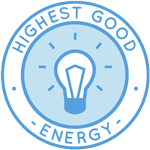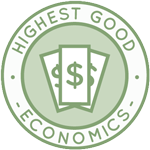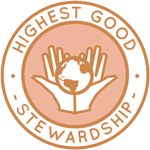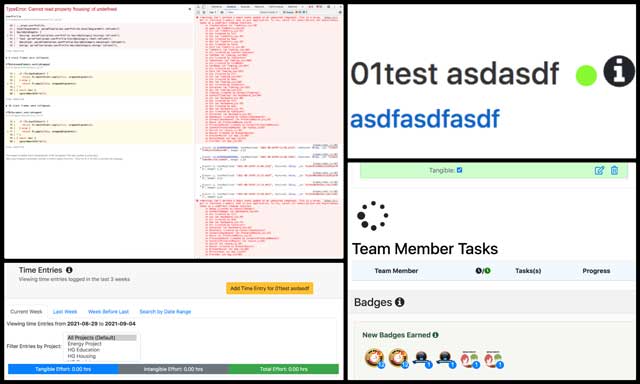Creating Regenerative Living Models – One Community Weekly Progress Update #442
One Community is creating regenerative living models for people and our planet. They include open source and sustainable solutions for food, energy, housing, education, for-profit and non-profit economic design, social architecture, fulfilled living, global stewardship practices, and more.
One Community will be the first of a global collaborative of teacher/demonstration hubs designed to teach and evolve these models for “The Highest Good of All“.
- Here’s our project overview
- Here’s our world-change methodology
- Here’s how this becomes self-replicating
- Here’s how we are open source and free-sharing all the do-it-yourself designs

OUR MAIN OPEN SOURCE HUBS
Click on each icon to be taken to the corresponding Highest Good hub page.
One Community’s physical location will forward this movement as the first of many self-replicating teacher/demonstration communities, villages, and cities to be built around the world. This is the September 12th, 2021 edition (#442) of our weekly progress update detailing our team’s development and accomplishments:
Creating Regenerative Living Models
One Community Progress Update #442
DONATE | COLLABORATE | HELP WITH LARGE-SCALE FUNDING
CLICK HERE IF YOU’D LIKE TO RECEIVE AN EMAIL EACH WEEK WHEN WE RELEASE A NEW UPDATE
YOU CAN ALSO JOIN US THROUGH SOCIAL MEDIA
ONE COMMUNITY WEEKLY UPDATE DETAILS
CREATING REGENERATIVE LIVING MODELS – HIGHEST GOOD HOUSING PROGRESS
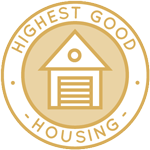 One Community is creating regenerative living models through Highest Good housing that is artistic and beautiful, more affordable, more space efficient, lasts longer, DIY buildable, and constructed with healthy and sustainable materials:
One Community is creating regenerative living models through Highest Good housing that is artistic and beautiful, more affordable, more space efficient, lasts longer, DIY buildable, and constructed with healthy and sustainable materials:
- Learn about: Our Upcoming Crowdfunding Campaign
- Learn about the different village models: 7 Sustainable Village Models
- Visit the open source portals for the first two: Earthbag Village OS Hub | Straw Bale Village OS Hub
This week the core team continued what we hope will be the final review of the Murphy bed assembly instructions. We finished recreating the Murphy bed in SketchUp 3D, assembling it using the latest version of the instructions. This included completing the assembly of panels on the back, front, both sides and the overhead section. Pictures below are related to this work.
The core team also reviewed the research the Aircrete and earthbag compression testing team did on aircrete and pulled out key takeaways and what to try next to prevent the aircrete from collapsing.
We made a detailed plan for the week for the students to carry out. We additionally reviewed work being completed by the city center dome connector team in preparation for integrating another team member and continued to work on the solar microgrid energy demand work ” responding to comments and beginning to review the first draft of the open source tutorial we’re creating.
The core team additionally continued working on the “Earthbag Construction Footers, Foundation, and Flooring” review for finalizing the live page. The focus this week was the flooring and the wing insulation.
We researched to make sure the rockwool insulation sheets could bear the weight of the slab and the earth, confirming the manufacturer explicitly says it does. We found that a respirator is needed when working with this material as a safety measure and started considering a simplification on the design to eliminate the need for metal flashing for the dome floor.
Pros and cons of this are still being considered. The pictures below share some of this work.
Another core team member addressed and deleted comments on the FFF doc, Roadways, Walkways, Gutter and Parking Lot doc, and Solar Hardware doc to the extent possible until further work is completed by other team members. He also engaged in two phone calls regarding the open source Chicken Coop designs. See related pics below.

Creating Regenerative Living Models ” FFF doc, Roadways, Walkways, Gutter and Parking Lot doc
Jose Luis Flores (Mechanical Engineer) completed his 60th week helping finish the Net-zero Bathroom component of the Earthbag Village. This week Jose Luis began organizing the part documents of the Net-Zero Bathroom SolidWorks rendering. He did this by isolating the parts into a specific folder and made sure to eliminate any errors in the referencing of SolidWorks.
The process involved opening the assembled document multiple times, every time a part was moved, to be sure the program was referencing the correct parts. This was done to ensure easier access and simplify troubleshooting errors that occur when an assembly has a large number of parts. He double checked the AutoCAD document in DropBox to make sure it was the latest version.
Lastly Jose added some finishing touches to the updated exterior roof by rendering roof flash and fasteners, securing and sealing the design. He also wrote action items for volunteer positions we’d like to fill and that he will be managing. The pictures below show some of this work.
Stacey Maillet (Graphic Designer) completed her 50th week working on the final edits and revisions to the Murphy bed instructions. Stacey worked this week on integrating more updates and comments from two members of the Core Team. This involves going through them one by one and then circling back repeatedly to consider symbols and labels, etc.
There are also some mistakes that were made early on with regards to exactly what position boards were placed in and how they fit together. Now that we can take an overview, we are catching and fixing those. Screenshots below are related to this latest progress.
David Na (Project Management Adviser/Engineer) completed his 26th week helping with input and management of the Parking Lot and Sustainable Roadways, Walkways, and Landscaping tutorial development, now mainly focused now on the Earthbag Village aspects of this. This week David started with incorporating the stairs section into the google doc.
He has decided to go with pressure-treated lumber and crushed stone/gravel for the fill of the stairs for cost effectiveness, aesthetics, and permeability/infiltration reasons. David also met with Daniela over Zoom to discuss the drainage plan and start a conversation on what the best plan of actions are for the Earthbag Village’s drainage plan.
Lastly, David worked with Carol and provided some redlines on the roadways cost analysis table that she created. Pictures below are related to this work.
Aidan Geissler (Sustainability Researcher) completed his 19th week helping with 2nd-to-final review, feedback, and content editing. Aidan continued to work on translating his research, analysis, and findings for the Insulation Comparison Spreadsheet he developed into written content for the Most Sustainable Insulation tutorial.
This week primarily consisted of writing a Pros list and Cons list for each of the 20 products. Aidan also began to research, identify, and write Key Features for each product. Pictures below are related to this work.
Daniela Andrea Parada (Civil Engineering Student) completed her 13th week helping with the Sustainable Roadways, Walkways, and Landscaping tutorial development, mainly focused now on the Earthbag Village components. This week Daniela focused on the roadway and drainage plans.
She started by providing a clear pdf version of the Earthbag Village, altering various features to ensure it was presentable for the website. She then measured the overall area of the village before and after the roadway alterations. Daniela also worked with Jae and David to improve the drainage systems.
Once plans were reviewed, she created various designs for the drainage pipes and implemented them along with David’s design into AutoCAD. Lastly she edited/updated the paragraphs explaining the Earthbag Village roadways.
Shreyas Dayanand (Battery Research Engineer) also completed his 10th week helping with the solar microgrid design specifics related to electric vehicles and battery sizing.
This week continued to edit the “Solar Farm Battery Analysis ” EV Integration and 100% Off-grid Needs” report by rephrasing sentences, aligning pictures, including tables where necessary, and adding further descriptions for clearer understanding. Shreyas also continued his research on case studies for solar farm battery storage options and has consolidated his findings.
Pictures below are related to this work.
The Compression Team consisting of Dominick Banuelos (Civil Engineering Intern), Jarot Tamba (Civil Engineering Intern), John Paul D. Matining (Civil Engineer Intern), and Marcus Nguyen (Civil Engineering Intern) completed their 10th week helping with the Aircrete and earthbag compression testing.
This week the team worked on more testing with the 7th Generation dish soap to see what may be causing the shrinkage with the cylinders. The week brought on some difficulty with obtaining lab time but even with the limited time availability the group was able to conduct some new tests. While doing them, it was noticed that the bubbles shrunk more with the soap by itself.
Some glycerin was then added in to see the difference. With the glycerin added, the bubbles stuck together more and did not really shrink. Tests included: 16oz 7th gen with 5 gallons water, 16oz 7th gen with 2 tablespoons glycerin, 25 ounce 7th gen with 5 gallons water, and 25 oz 7th gen with 2 tablespoons glycerin.
All samples seem to have collapsed in under an hour, but the ones with glycerin seemed to have a slightly better structure to their foam. Understanding this will be helpful and some more testing with other soaps will be conducted the following week. The team also redid and will redo again the jar test. Pictures below are related to this work.
And John Aquino (Electrical Engineer) also completed his 9th and final week helping with the Duplicable City Center Electrical designs. To wrap up his work in a way that can be passed to another engineer, John created a MEP Production Standards tutorial, listed the work he’d completed and what he saw as remaining, and handed over and organized all his files. Pictures below show some of this work.
CREATING REGENERATIVE LIVING MODELS – DUPLICABLE CITY CENTER PROGRESS
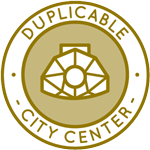 One Community is creating regenerative living models through a Duplicable and Sustainable City Center that is LEED Platinum certified/Sustainable, can feed 200 people at a time, provide laundry for over 300 people, is beautiful, spacious, and saves resources, money, and space:
One Community is creating regenerative living models through a Duplicable and Sustainable City Center that is LEED Platinum certified/Sustainable, can feed 200 people at a time, provide laundry for over 300 people, is beautiful, spacious, and saves resources, money, and space:
- Learn about this building and it’s function: Duplicable City Center Open Source Hub
This week the core team continued work on the Duplicable City Center Project Specification and Design Basis documentation. This week we worked on the floor and ceiling details and structural framing details, completing level 3 and 4, and solving more code issues. Pictures below share some of this work-in-progress.
Carol Nguyen (Civil Engineer) also completed her 20th week helping with the Sustainable Roadways, Walkways, and Landscaping tutorial development. This week, Carol worked on editing and adding other options in the calculations spreadsheet for the roadways unlimited expense plan and minimized expense plan.
Specifically, she calculated the aggregate base option and incorporated the new costs. Carol also fixed the CAD drawings for both options. Pictures below are related to this work.
Venus Abdollahi (Architectural Designer) completed her 9th week helping finish the Duplicable City Center designs, now focused on the dormer window designs. This week Venus completed the first-floor dormer window for the City Center Living Dome.
She added the window in 3D SketchUp in order to meet the International Building Code fire code/egress and then joined a new team and started helping with review and checking of codes to complete/finalize the building occupancy table. See pictures below.
And Carlos Lillo (Engineering Technician) completed his 9th week helping with the pallet furniture designs for the Duplicable City Center guest rooms. This week, Carlos finished the 2nd Lvl Animations (Cameras, Brackets, Screws, Nails, etc) for all 4 Pallet Furnitures.
All that is left now is to produce the renders. According to Carlos’ data, the longest renders would be Pallet Bed and Pallet Wardrobe, due to the amount of parts to animate. These should be finished within the next two weeks, depending on the final changes or modifications the last two renders may require. Pictures below are related to this work.
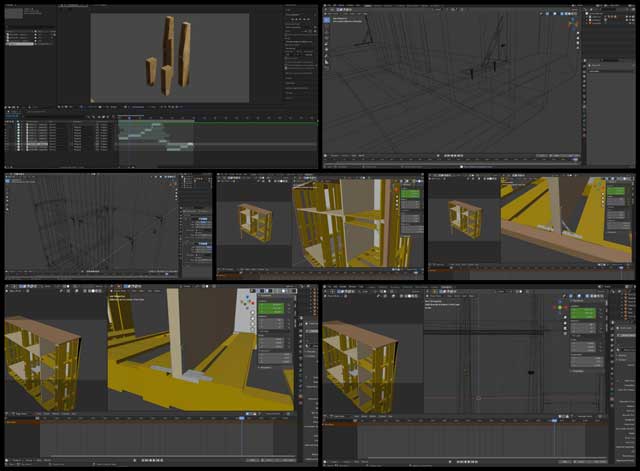
Creating Regenerative Living Models ” pallet furniture designs of Duplicable City Center guest rooms
Andrew Wilbert Vidianto (Mechanical Engineer) completed his 7th week working on the Duplicable City Center connectors we’ll use to build the domes. This week, Andrew spent most of his hours reading and researching on the best bolt for metal sheet to wood connections and how the bolt will perform on the wood beam.
He researched and found the best size of bolt and then redesigned the V-beam connector on SolidWorks. Pictures below are related to this work.
And Xuanji Tang (Architectural Designer) completed her 3rd week working on Duplicable City Center architectural review and updates related to the structural code. This week she revised the occupant load table in the City Center Project Specification and Design Basis doc., and the number of exits and doorways (egress) on each floor.
Xuanji then started producing a table for the allowable area for the whole building to see if our current design meets the requirements. The pictures below relate to this work.
CREATING REGENERATIVE LIVING MODELS – HIGHEST GOOD FOOD PROGRESS
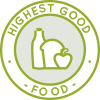 One Community is creating regenerative living models through Highest Good food that is more diverse, more nutritious, locally grown and sustainable, and part of our open source botanical garden model to support and share bio-diversity:
One Community is creating regenerative living models through Highest Good food that is more diverse, more nutritious, locally grown and sustainable, and part of our open source botanical garden model to support and share bio-diversity:
- Learn about the structures: Hoop House Hub | Aquapini & Walipini Open Source Hub
- See what we’ll be growing: Gardens & Hoop Houses | Large-scale Structures | Food Forest | TA
This week the core team returned to working on the Chicken Coop Assembly document. We updated the upper section of the south wall in the SketchUp model and all related images in the assembly document.
Qiuheng Xu (Landscape Designer) also completed her 49th week volunteering, now helping with the Aquapini & Walipini external landscaping details. This week Qiuheng revised the central pond area and one of the steep slopes around the central terrace area to experiment if it works.
She also fixed material conflicts and updated the model in Lumion with more plants and rendered it. Qiuheng also re-edited the video from :45 to better show the walk around. Pictures below are related to this.
CREATING REGENERATIVE LIVING MODELS – HIGHEST GOOD EDUCATION PROGRESS
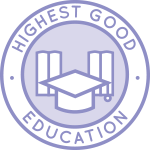 One Community is creating regenerative living models through Highest Good education that is for all ages, applicable in any environment, adaptable to individual needs, far exceeds traditional education standards, and more fun for both the teachers and the students.
One Community is creating regenerative living models through Highest Good education that is for all ages, applicable in any environment, adaptable to individual needs, far exceeds traditional education standards, and more fun for both the teachers and the students.
This component of One Community is about 95% complete with only the Open Source School Licensing and Ultimate Classroom construction and assembly details remaining to be finished. We’ll report on the final two elements to be finished as we develop them.
With over 8 years of work invested in the process, the sections below are all complete until we move onto the property and continue the development and open sourcing process with teachers and students – a development process that is built directly into the structure of the education program and everything else we’re creating too:
- Program Overview: Education Open Source Hub
- How the components work together: How to use the Education for Life Program
- Lesson Plans for Life – Lesson Plans How-to
- Foundations of Outstanding Leaders, Teachers, and Communicators
- Curriculum for Life
- Teaching Strategies for Life
- Learning Tools and Toys for Life
- Evaluation and Evolution
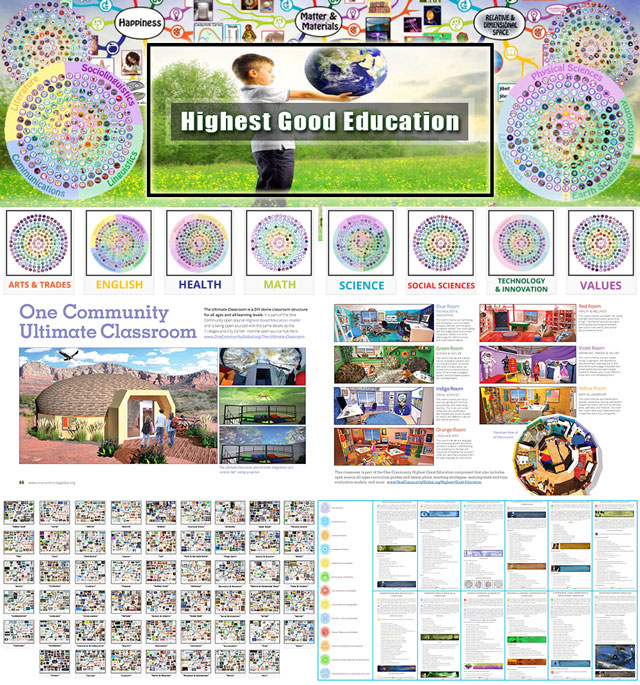
Highest Good Education: All Subjects | All Learning Levels | Any Age – Click image for open source hub
CREATING REGENERATIVE LIVING MODELS – HIGHEST GOOD SOCIETY PROGRESS
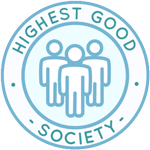 One Community is creating regenerative living models through a Highest Good society approach to living that is founded on fulfilled living, the study of meeting human needs, Community, and making a difference in the world:
One Community is creating regenerative living models through a Highest Good society approach to living that is founded on fulfilled living, the study of meeting human needs, Community, and making a difference in the world:
- Read the Highest Good society overview: Highest Good Society
- Learn about the model for fulfilled living and sharing: A Day in the Life
- Learn about the 4 economic models: RBE | For-profit | Non-profit | Entrepreneurship
- Learn about our open source community collaboration and management software: The Highest Good Network
This week the core team completed 38 hours managing One Community emails, social media accounts, interviewing potential new volunteer team members, and managing volunteer-work review and collaboration not mentioned elsewhere here. Pictures below show some of this.
We also completed 12+ hours of additional testing and bug identification and correction confirmations for the Highest Good Network software. The pictures below relates to this.
Narek Tsaturyan (Software Engineer) completed his 6th week working on the Highest Good Network software. This week Narek worked on the functionality of the leaderboard component of the application. There was a bug when loading the component in the Admin view. He also performed code reviews for back end code and front end.
The pictures below are related to this work.
Cameron White (Software Engineer) completed his 5th week working on the Highest Good Network software. This week, Cameron continued fixing the handful of bugs left on the bug list resulting in about a dozen pull requests. As part of the bug fixing process, he started rewriting the UserProfile component due to the technical debt it has accumulated.
He also had discussions with Jae about how to set up the highestgood.com domain and the available security certificate options for the domain. Additionally, Cameron started working on migrating the current Highest Good Network app’s front end from Surge.sh to Azure because of the security certificate limitations of Surge. See the related pictures below of this work.
Aleksandra “Alex” Gorkovenkø (Graphic Designer) also completed her 5th week working on images for our open source social media strategy. This week Aleksandra focused on working on business ethics posters. She tried to find good business practices to make it more positive.
She also searched for images that would represent companies and connect them with environmental issues. Alex also fixed posters from the previous week and created additional environmental posters. You can see some samples of these below.
Cal Vert Wong (Software Engineer) also joined the team and completed his 1st week working on the Highest Good Network software. For his 1st week Cal focused on getting familiar with the codebases and looking at the unattended bugs from the bugs list.
He began work on a bug which requires an Admin-editable end date in the volunteering tab. This bug should also auto-supply the end date based on when a person was last made inactive. Pictures below are related to this work.
AND WE PRODUCED THIS WEEKLY UPDATES BLOG – CLICK HERE TO SUBSCRIBE
FOLLOW ONE COMMUNITY’S PROGRESS (click icons for our pages)
INVESTOR PAGES
GET INVOLVED
DONATE | WAYS ANYONE CAN HELP | MEMBERSHIP
CLICK HERE FOR ALL PAST UPDATES
 One Community
One Community